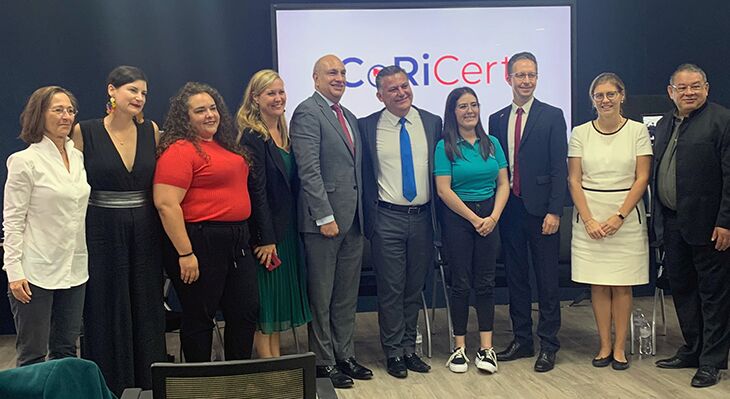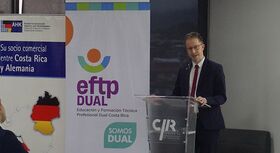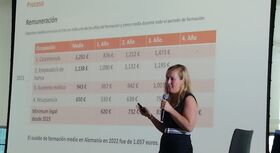Costa Rica: Dual education is growing
Longstanding VET cooperation is growing
08.09.2023
With the aim of providing additional impetus for the introduction of dual vocational education and training in Costa Rica a five-member delegation led by the BMBF travelled to Costa Rica. Meetings showed that the successes of the longstanding cooperation are visible, effective and highly appreciated.

At the official reception for the German delegation, Costa Rican Vice Minister of Education Melvin Chaves Duarte thanked the BMBF and GOVET for their long-standing cooperation. An agreement on cooperation in vocational education and training has existed between the two ministries of education since 2016. The BMBF and the Costa Rican partners emphasised the importance of GOVET's work, which lays the foundation for further cooperation activities within the framework of bilateral cooperation in vocational education and training. GOVET has accompanied the Vocational Training Commission for Advising and Promoting Dual Training (Comisión Asesora y Promotora para la EFTP Dual, CAP) since the beginning and advises the CAP working group on technical issues.
In the course of the week, various events with business associations and chambers were at the centre of the visit to Costa Rica, with the aim of showing companies the benefits ofdual VET. An exchange with representatives and members of the National IT Business Chamber of Costa Rica (Cámara de Tecnologías de Información y Comunicación, CAMTIC) showed their strong interest in the topic. There are already companies that offer three-year dual training in web design. At the same time, challenges in providing dual training in small companies were addressed - also a challenge in Germany.

Another highlight was the business meeting organised by GOVET together with the German-Costa Rican Chamber of Commerce Abroad (AHK) and the CAP working group on the premises of the Costa Rican Chamber of Industry (Cámara de Industrias de Costa Rica). Almost 80 participants responded to the call. Particularly impressive were the exchanges among companies that were among the first to dare to offer dual training, including WestIn Reserva Conchal, Kaizen, Pozuelo and Abbott. All of them were convinced of the advantages of dual vocational training, even though not everything went perfectly at the beginning. The company representatives see the possibility of securing skilled labour as the biggest advantage.
At another event organised by the America Free Zone (AFZ) and the Association of Free Zones of Costa Rica (Asociación de Empresas de Zonas Francas de Costa Rica, AZOFRAS), there was also a lively exchange with the 75 representatives of companies and other free zones present.
During the visit, the BMBF and the CoRiCert project partners presented the project together with the Costa Rican Ministry of Education. CoRiCert aims to establish a company-based examination system in dual vocational education and training and to develop a strategy for cooperation with companies. At the kick-off event, Yaiza Rojas Matas from the organization Arbeit und Leben Hamburg and Claudia Hunink from the University of Osnabrück presented the project goals and scientific approach.

In the formal meeting of the national VET commission CAP on 23 August, to which the BMBF and GOVET, as well as the other delegation participants, were invited as guests, the current developments were discussed with the state secretaries and representatives from industry and workers' representatives present. The CAP members were also informed about the study visit of the CAP working group in May 2023, which was financed by the BMBF and carried out by GOVET. The CAP representatives expressed their gratitude for Germany's commitment to vocational education and training.
Further working meetings with the Instituto Nacional de Aprendizaje (INA), which has already sent two delegation groups to Germany for study visits, the Ministry of Education, the CAP working group and the National Union for Education workers (Sindicato de Trabajadoras y Trabajadores de la Educación Costarricense, SEC) rounded off the intensive visit programme.